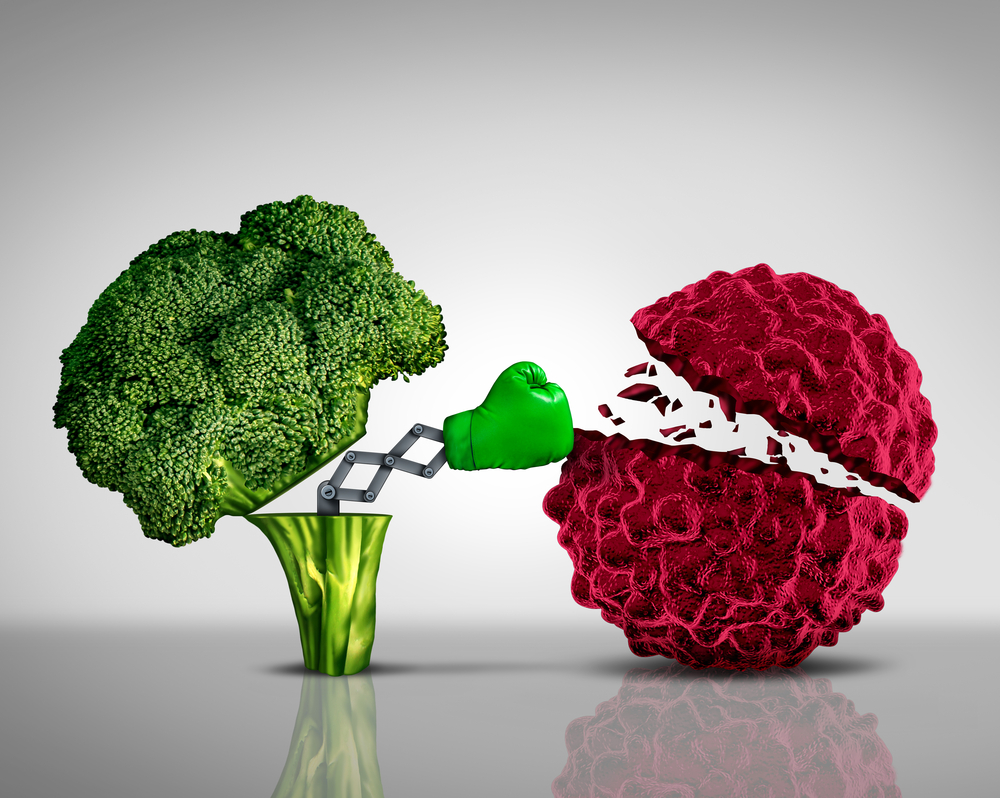 The World Cancer Research Fund, Cancer
Research UK and The National Institute of Health of the USA all estimate, based on the available scientific data, that about 50% of cancers could be preventable by lifestyle
factors. As more research is published, the benefits of other lifestyle factors
and choices may well increase this figure. The World Cancer Research Fund, Cancer
Research UK and The National Institute of Health of the USA all estimate, based on the available scientific data, that about 50% of cancers could be preventable by lifestyle
factors. As more research is published, the benefits of other lifestyle factors
and choices may well increase this figure.
In
addition to sensible medical precautions (presenting to the doctor with concerning
symptoms, getting vaccinated for HPV, attending screening programmes such as
bowel faecal analysis and mammography), this
section highlights practical lifestyle guidance to avoid cancer. Likewise,
although patients with
established cancer have already sustained the initial DNA damage in order to
mutate from benign to malignant cells, the progress from an early indolent
cancer to an aggressive form can be influences by on-going nutritional and
lifestyle habits. Further DNA damage encourages the cancer to developed
mechanism to hide from the body's immunity or become resistant to medical
treatments. .
Why
lifestyle matters:
-
Reduces the risk
of cancer and other chronic inflammatory related
diseases
-
Reduces
side effects of cancer treatments and symptoms of cancer
-
Improves
the response to cancer treatments especially the new biological/targeted
agents
-
Speeds
up recovery after cancer treatments
-
Reduces
the risk of relapse after initial treatments and improve
the chance of a long healthy life
.
Categories
of lifestyle and diet to focus on:
-
Exercise - increase
daily moderate to strenuous levels, aiming for 3-5 hours a week and avoid long periods of
sedentary behaviour ...read more
-
Processed sugar -
try to eliminate intake, especially on an empty stomach, aim for a low glycaemic index diet
...read more
-
Phtytochemicals -
maintain a high intake of phytochemical rich foods, even consider a quality
supplement as a boost, if necessary ...read more
-
Smoking - try to
stop immediately ..tips to quit
-
Carcinogenic foods
- avoid smoked foods, acrylamides in baked foods and nitrosamines in
processed meats
..read more
-
Carcinogenic
xenoestrogens - reduce exposure to plastic, pollution and
pesticides ..read more
-
Alcohol - avoid in excess, have days off and go for quality not quantity
..tips
-
Meat - reduce red
meat and stop cheap processed meat intake, avoid burned, grilled or barbecued meats
..read more
-
Fats and oils - eat a profile of good fats and avoid bad fats
..read
more
-
Essential minerals - ensure sufficient intake
to avoid deficiency and consider a well designed supplement ..read
more
-
Vitamins - ensure sufficient intake but avoid extra pills unless
there is a know deficiency
..read
more
-
Sunlight & Vitamin D - take extra pills in the Winter, try to get regular sun without burning
..read more
-
Dietary fibre
- Increase intake especially from flaxseeds, quinoa, whole grains and wild rice
..more
-
Plant proteins - increase legumes, beans and pumpkin and other seeds rich in plant proteins
..healthy
dishes with legumes
-
Body mass - try to maintain a healthy weight,
not too thin and loose weight if obese ..read
more
-
Overnight fasting - aim for 13 hours between your evening meal and breakfast ..more
-
Nuts - eat a handful of mixed nuts every day
-
healthy dishes with nuts
-
Gut heath - try to maintain a healthy gut with natural foods and probiotics if necessary
..what are probiotics
-
Sleep - try to adopted good sleep hygiene habits to enhance a regular circadian rhythm
..read more
-
Mood - Look after your
thought processes and psychological health ..read
more
.
When to consider a lifestyle
initiative?
Shortly after their diagnosis, patients and their relatives
are confronted by a sudden commotion activity usually traveling to the
hospital for blood tests, x-rays, scan, biopsies, and treatments. This
causes enormous upheaval to the daily routine both socially and at the work
place. Most of your time is
taken up adjusting to their new diagnosis, with coping with the side effects
of therapy and the difficulties of remembering, where and when they have to
be and what to do when they get there! Forcing yourself into a
strategy which you cannot do for practical or physical reasons would be
inappropriate or at worse may project a feeling of guilt which is counter
productive. Depending on the individual circumstances, at an early point in
the treatment pathway, however, the subject could be introduced gradually
and sensitively. The timing is paramount, as is ability of the clinician to
assess the patientís receptiveness to considering lifestyle issues at each
stage. Too early and the anxieties of the circumstances will be confounded,
too late and the benefits of lifestyle will be overlooked.
.
|
 The World Cancer Research Fund, Cancer
Research UK and The National Institute of Health of the USA all estimate, based on the available scientific data, that about 50% of cancers could be preventable by lifestyle
factors. As more research is published, the benefits of other lifestyle factors
and choices may well increase this figure.
The World Cancer Research Fund, Cancer
Research UK and The National Institute of Health of the USA all estimate, based on the available scientific data, that about 50% of cancers could be preventable by lifestyle
factors. As more research is published, the benefits of other lifestyle factors
and choices may well increase this figure. 



